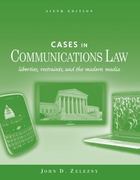Question
Topic 1: Case Study: Ethical Decision-Making Formats Case Study 6.1 (Johnson, 2021) is below. Before you do an analysis, explain your gut reaction, paying careful
Topic 1: Case Study: Ethical Decision-Making Formats
Case Study 6.1 (Johnson, 2021) is below.
Before you do an analysis, explain your "gut" reaction, paying careful attention to your emotions. What is your initial emotional reaction?
Now, analyze the case using the Lonergan/Baird Method (see Baird, 2015). How does your initial reaction (emotional) compare to your logical analysis using the Lonergan/Baird method?
Next, analyze the same scenario using one of the other remaining ethical decision-making formats (Four-Way, Five Timeless Questions, or Foursquare Protocol). How does your analysis compare to the Lonergan/Baird analysis?
Which method do you prefer and why? What are the advantages and disadvantages of Lonergan/Baird method vs. the other method you selected? Did your logical analysis change your initial "gut" (emotional) reaction to the scenario?
Baird, 2015 resource
https://www.youtube.com/watch?v=t_gAfqncF74
Case Study 6.1 Scenario B
You are the chair of the tenure and promotion committee at your small university. Your committee, made up of senior faculty, evaluates the teaching and scholarship of professors and then makes recommendations to the university provost. Committee members take their responsibilities seriously, knowing that peer reviewwhere faculty members evaluate the work of other facultyplays a critical role in higher education. They feel an obligation to maintain high teaching and research standards. No professor can be tenured (given guaranteed employment) or promoted to a higher rank (associate professor, full professor) without a positive recommendation from your group. Those denied tenure must leave the school at the end of the current school year. Your closest departmental colleague is being reviewed for tenure. (Your families sometimes celebrate holidays together and your children are friends.) He expects that you will offer a positive review and encourage the committee to recommend tenure. Unfortunately, your coworker's teaching evaluations are below average. His scholarship is not strong enough to make up for these shortcomings. You know that your colleague will be devastated by a negative evaluation and will be forced to move to another city to take a new position. He will feel betrayed and blame you for the committee's decision, though you are only one voice in the group. Will you support your colleague's application for tenure?
Step by Step Solution
There are 3 Steps involved in it
Step: 1

Get Instant Access to Expert-Tailored Solutions
See step-by-step solutions with expert insights and AI powered tools for academic success
Step: 2

Step: 3

Ace Your Homework with AI
Get the answers you need in no time with our AI-driven, step-by-step assistance
Get Started


